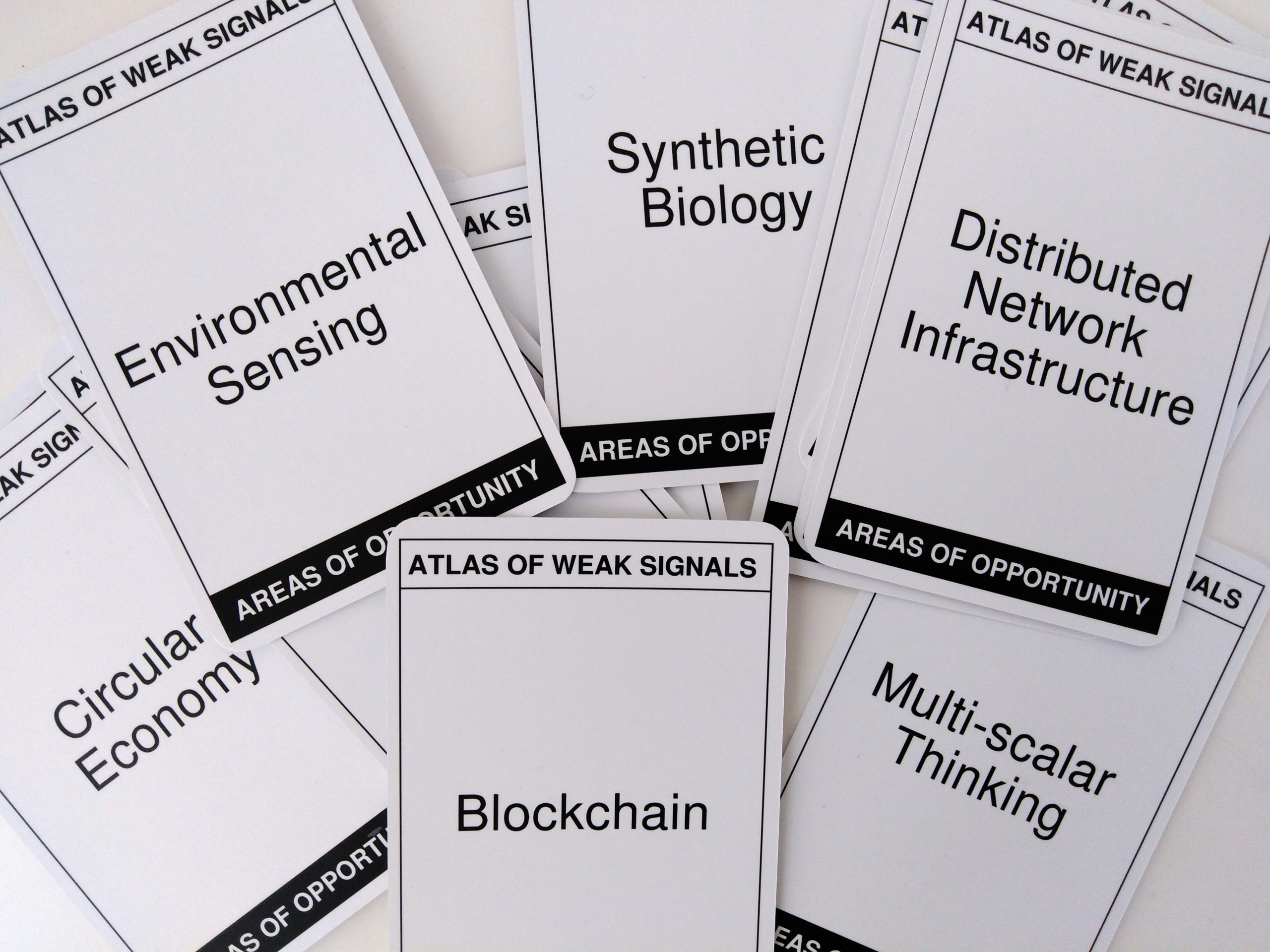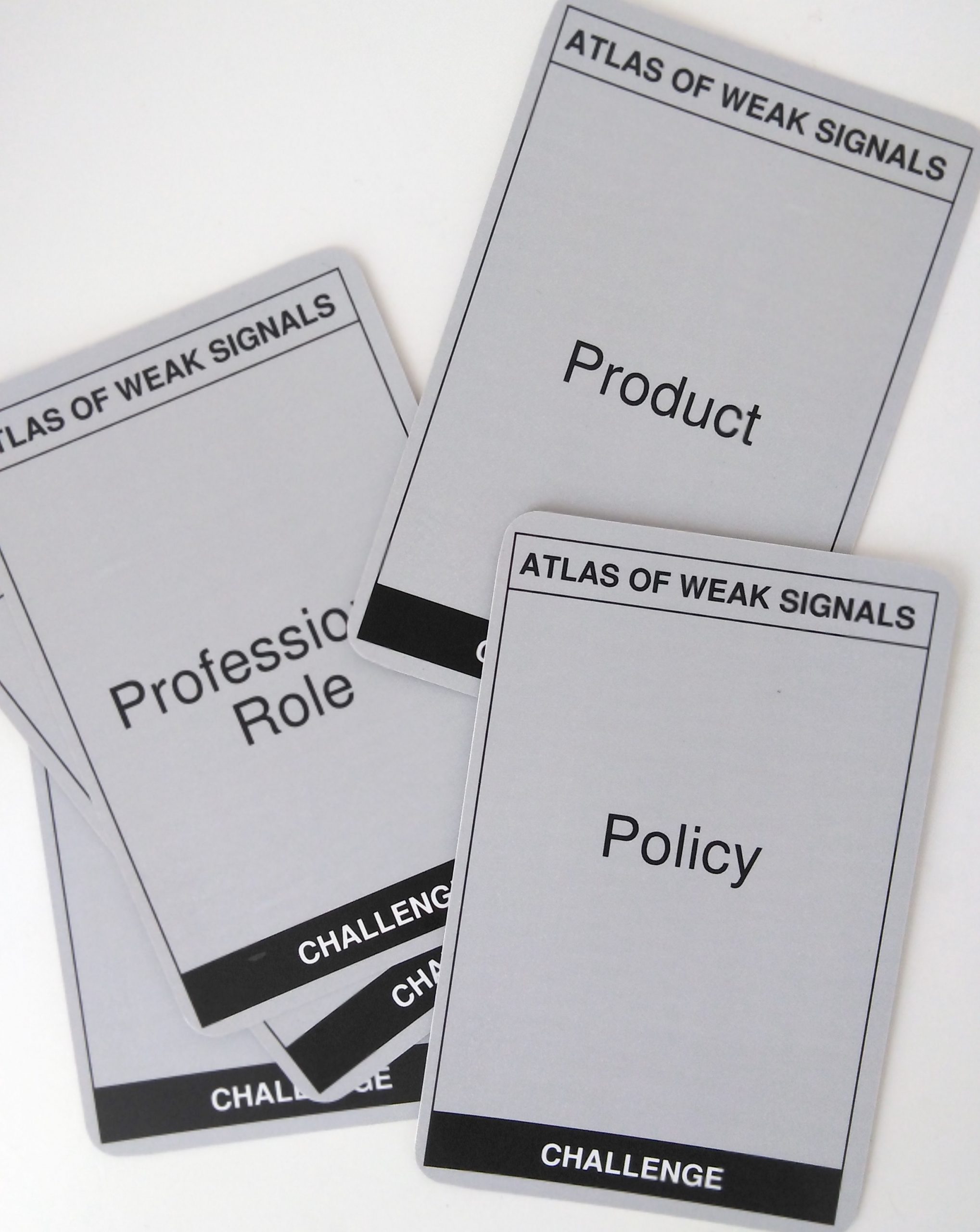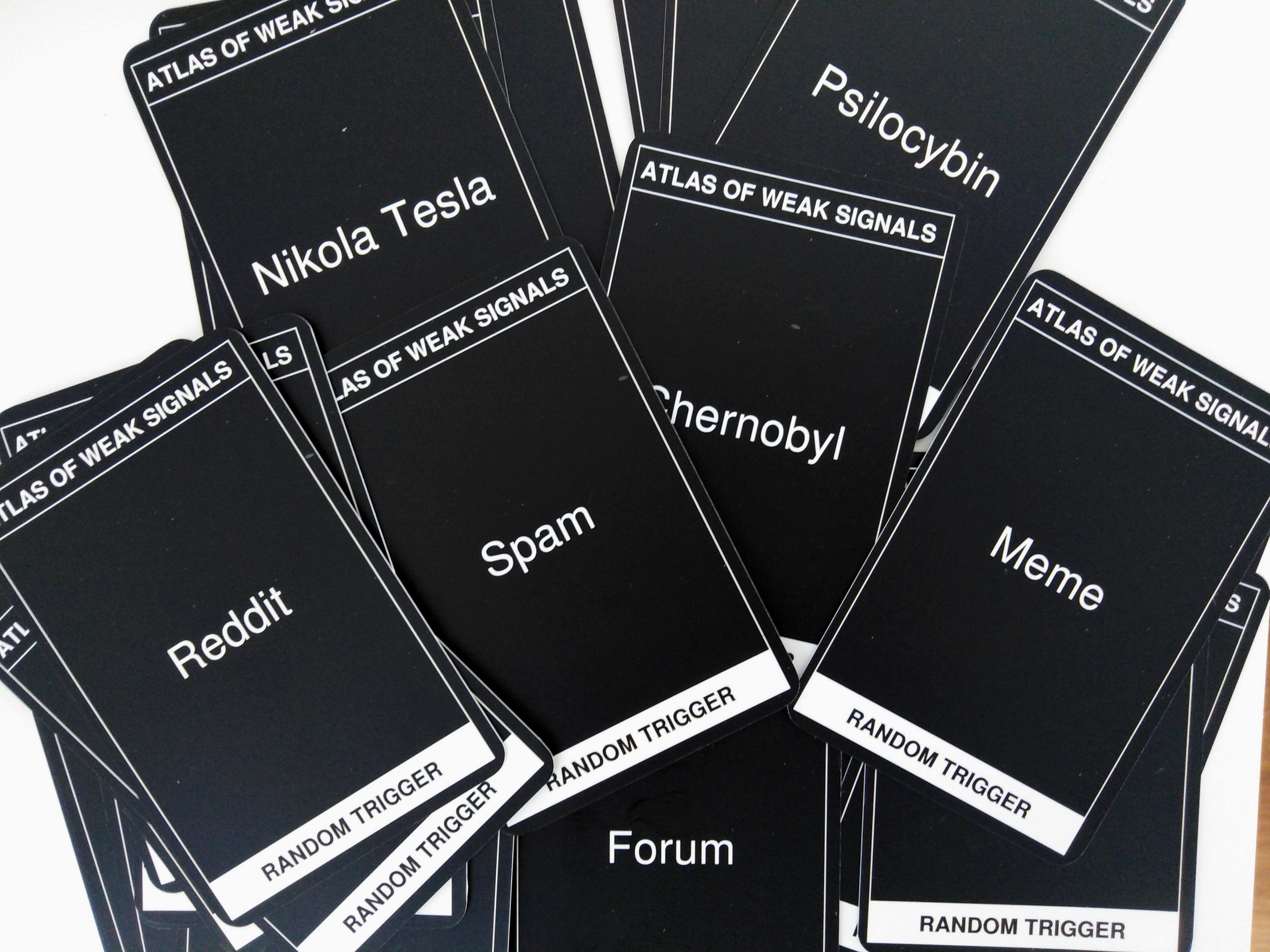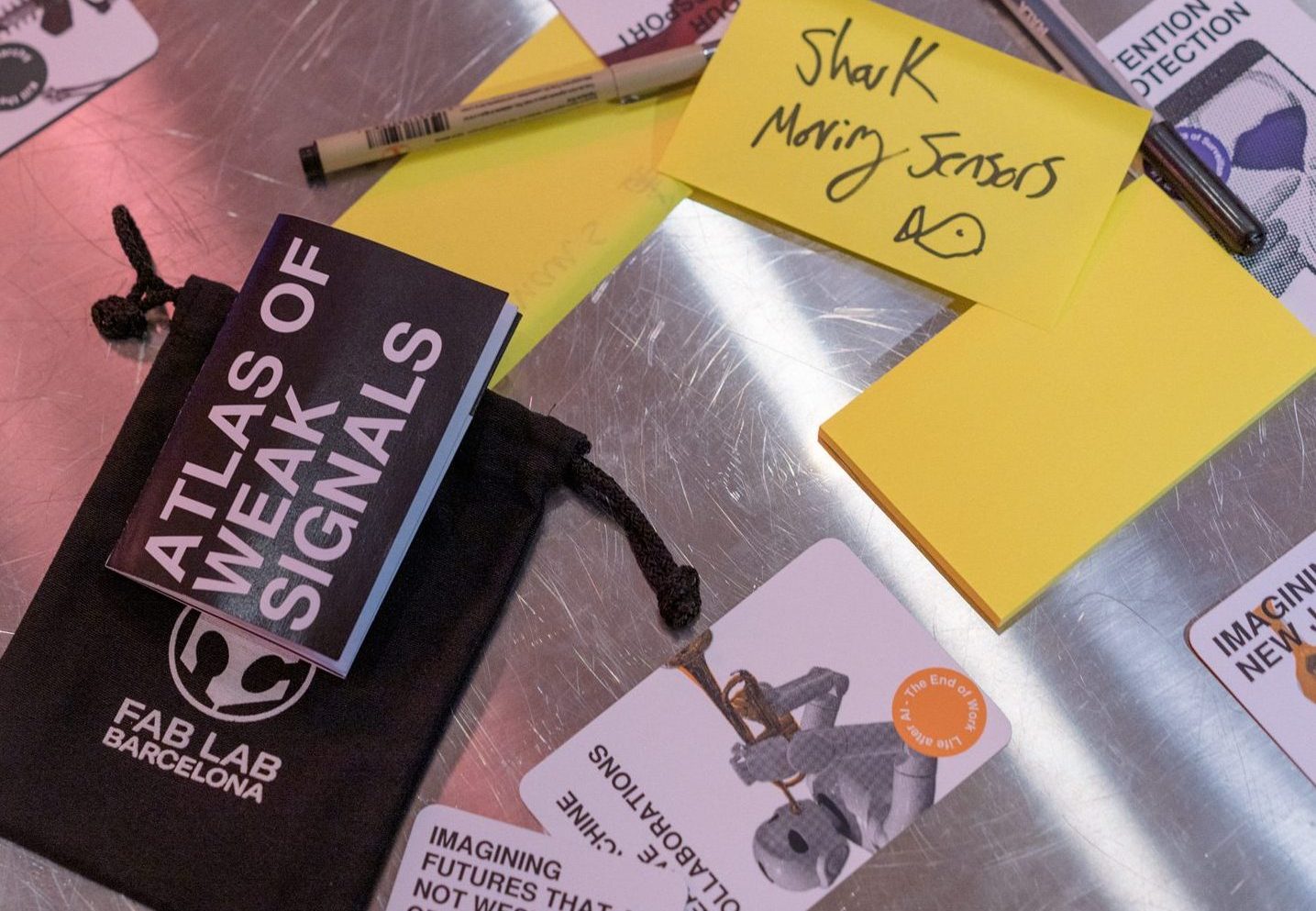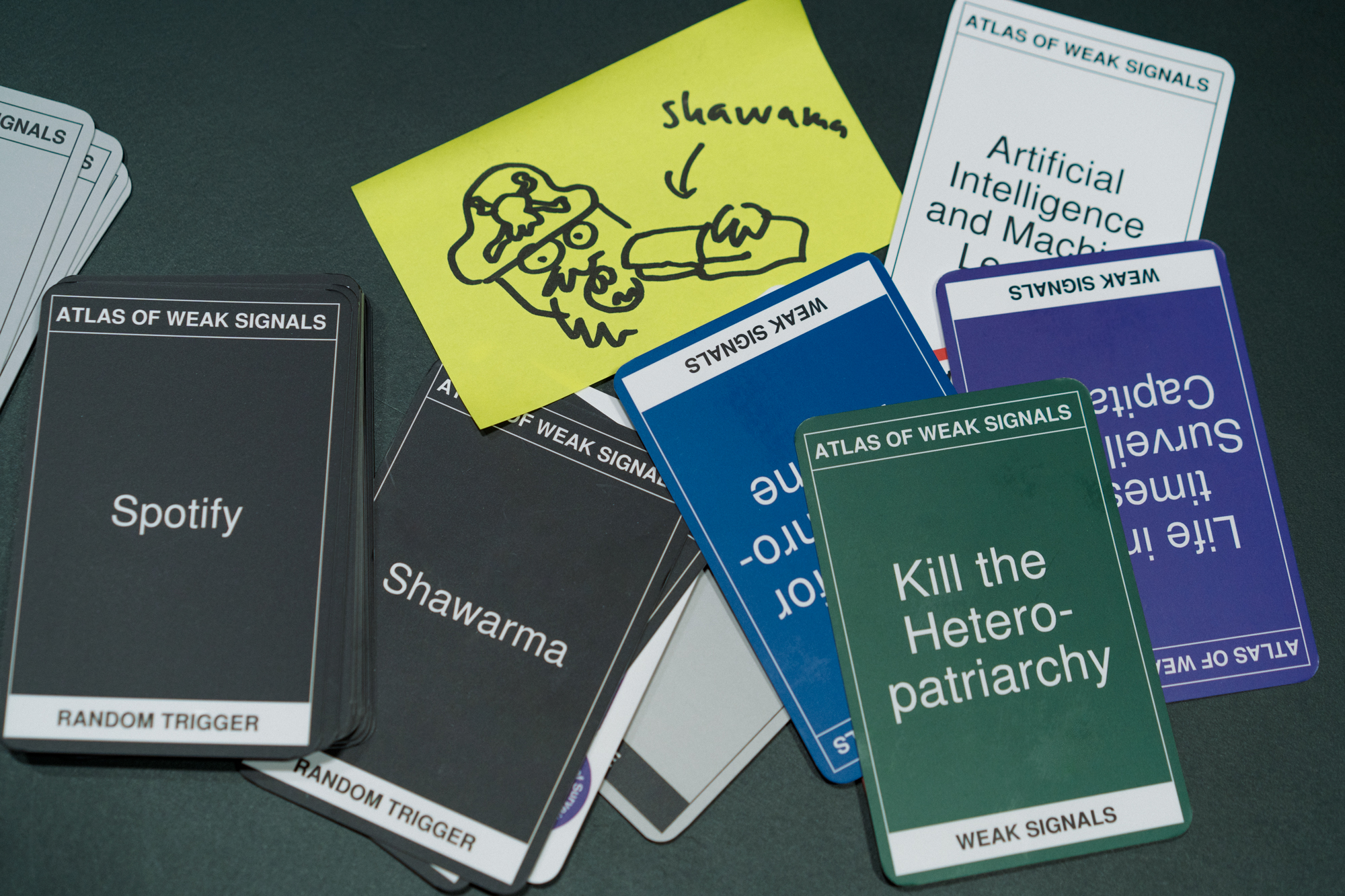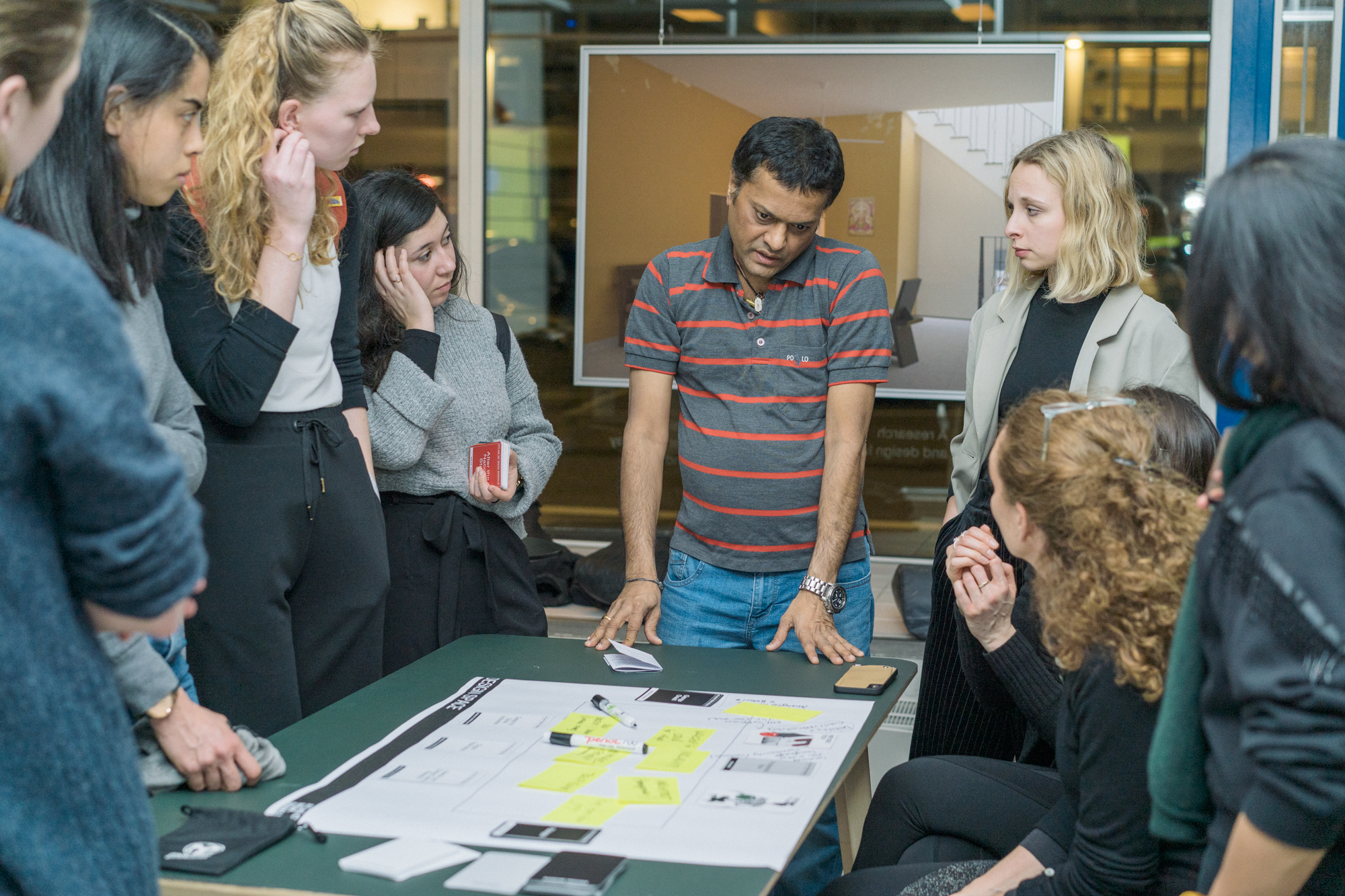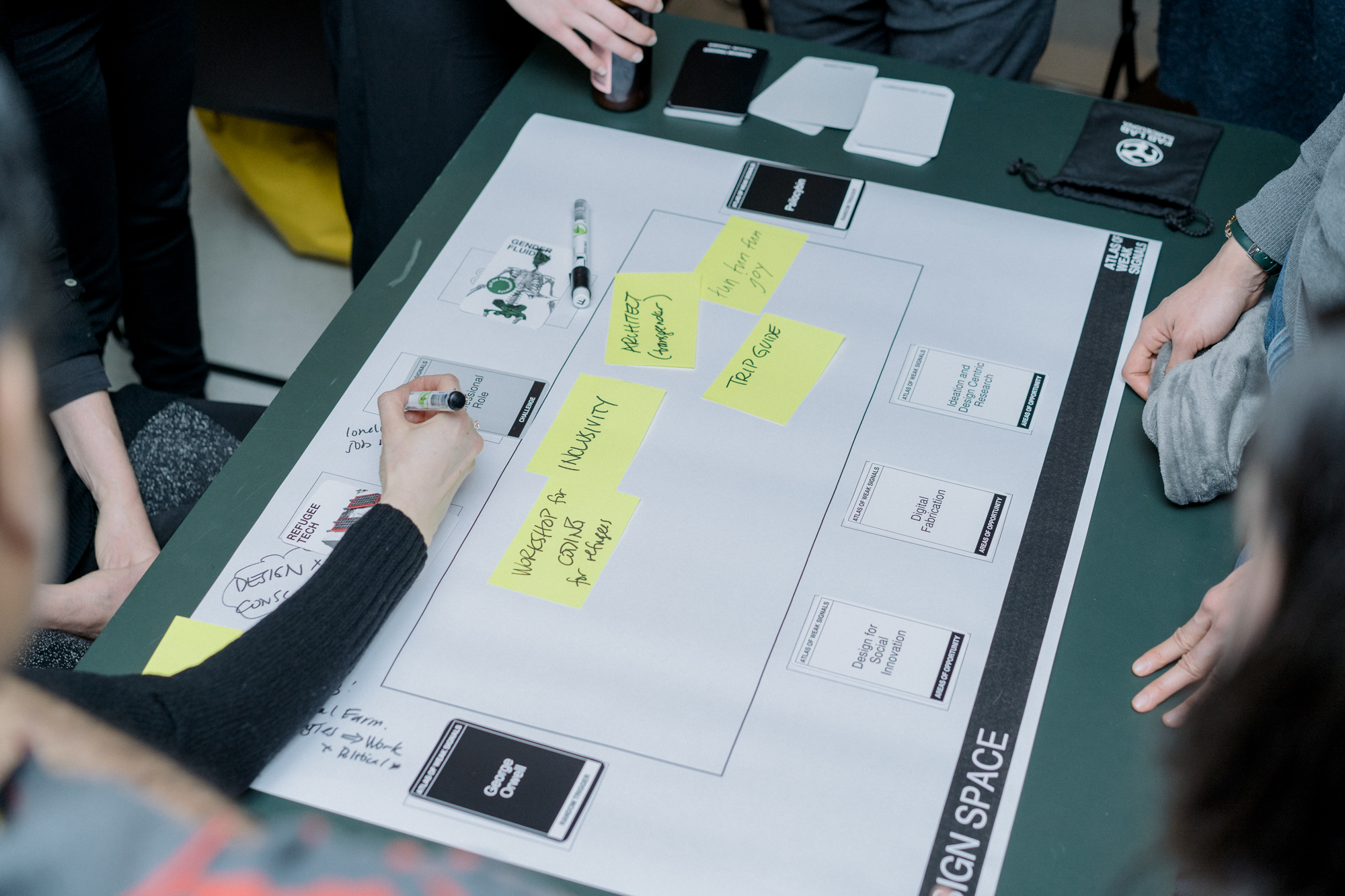Atlas of Weak Signals
Revealing spaces of opportunity to design for emergent futures
Revealing spaces of opportunity to design for emergent futures
In designing for emergent futures, an Atlas of Weak Signals serves as a visible methodology and structure to situate students, designers and a wide range of professionals from different fields, enabling them to start identifying potential intervention opportunities. It offers immediate keywords for research and experimentation and provides a starter design space to gain confidence and direction on where to begin. What is a weak signal? It is an early indicator of change that has the potential to trigger major events in the future. Collecting and organising a representative group of weak signals that can describe possible vectors, discontinuities, and emerging casualties can serve as a keyword taxonomy that offers a starting ground from where to analyse current systems and build possible scenarios.
As part of a collaboration between the Master in Design for Emergent Futures, ELISAVA and cultural analyst José Luis de Vicente, 25 weak signals were identified within five groups (see Table 1). These 25 weak signals reflect the current trends or emerging issues identified by the lens of the programme, but they can grow or be modified to fit the interests of the group wishing to implement the methodology.
Clustering of 25 weak signals into 5 groups:
| Group | Weak Signals | ||||
| Surveillance Capitalism | Attention Protection | Dismantling Filter Bubbles | Circular Data Economy | The Truth Wars | Redesigning the Social |
| Anthropocene | Climate Conscience | Interspecies Solidarity | Long-Termism | Carbon Neutral Lifestyles | Fighting Anthropocene Conflicts |
| The Future of Work | Tech for Equality | New Jobs | Fighting AI Bias | Universal Basic Income | Human-Machine Creative Collaborations |
| After the Nation-State | Making World Governance | Rural Futures | Pick Your Own Passport | Refugee Tech | Wellfare State 2.0 |
| Exploring Identity | Non-Heteropatriarcal Innovation | Non-Western-Centric Futures | Reconfigure Your Body | Gender Fluidity | Disrupt Ageism |
The Atlas has been further developed as a physical toolkit that invites the participants to reflect on how the 25 weak signals can combine with areas of opportunity, specific design challenges and random triggers that can aid the designer into establishing an initial ground to start research. The physical toolkit consists of four decks of cards that can be combined in the design space. Deck 1 is the Atlas of Weak Signals itself, consisting of the actual 25 weak signals that were presented above in Table 1. Deck 2 compiles areas of opportunity. This group of keywords describes the strategic areas of research that have been identified by Fab Lab Barcelona as major areas of innovation that are affecting or offering new opportunities of research for almost every sociotechnical system and industry today. These, juxtaposed and related to any of the 25 weak signals, offer immediate new possible areas of research and intervention. Deck 3 consists of wild cards or trigger cards. These cards aid the participants in taking into account random events that can affect their design process. Deck 4 presents challenges. This deck consists of five cards that describe specific challenges for innovation, which are: Institution, Service, Professional Role, Policy, and Product. Any of these challenges, combined with the weak signals and the strategic areas of innovation, complete the triangulation needed to spot possible emergent futures.
For more information please refer to:
Diez, Tomas, Oscar Tomico and Mariana Quintero. 2020. “Exploring Weak Signals to Design and Prototype for Emergent Futures”. Temes de Disseny 36: 70–89. https://doi.org/10.46467/tdd36.2020.70-89
Deck of cards of the Atlas of Weak Signals
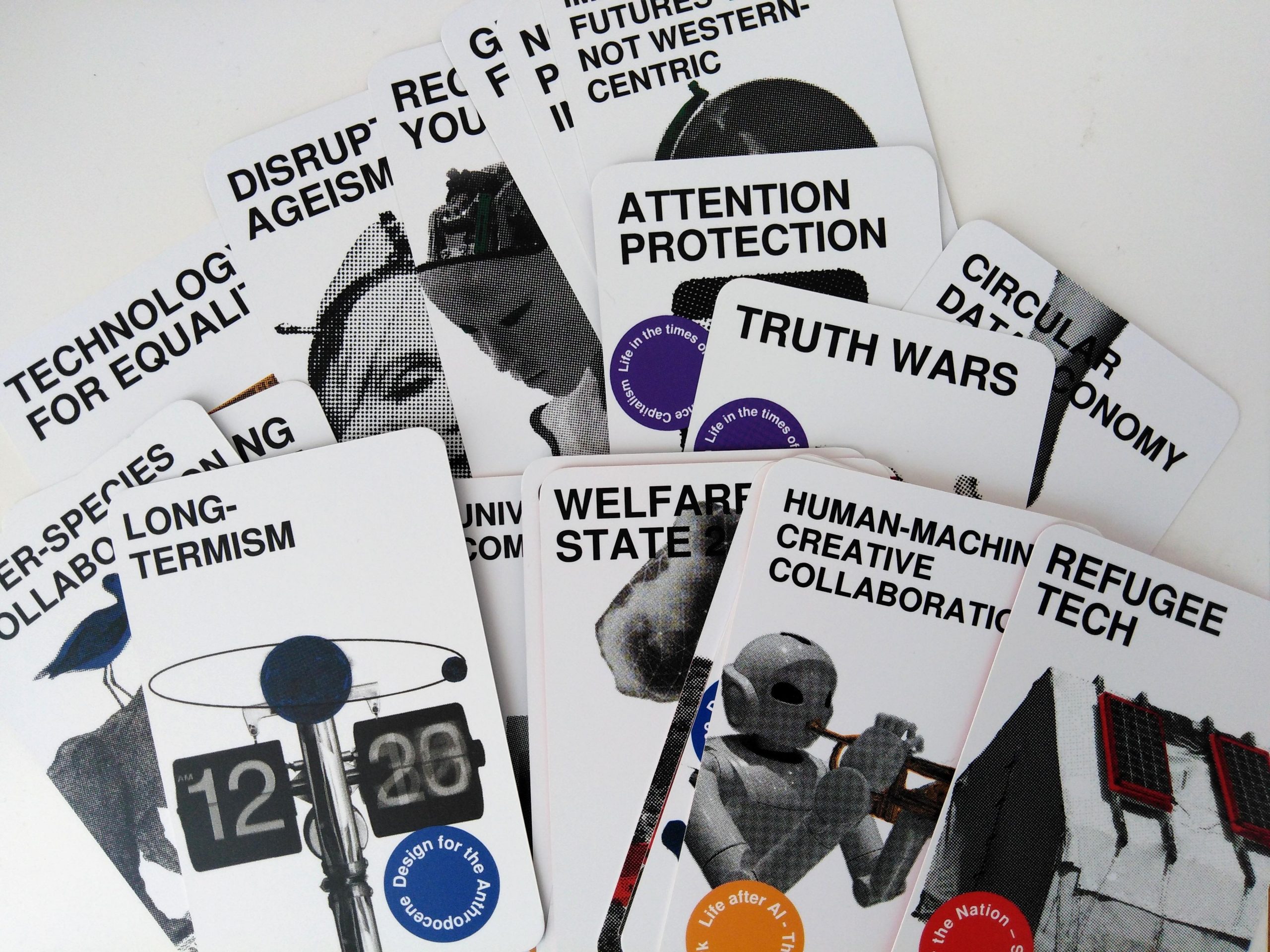
The physical toolkit is of open-source licence and is available Fab Lab Barcelona website.
In there, you can also find one of the lectures of the seminar “Atlas of Weak Signals” part of the Master in Design for Emergent Futures given by Jose Luis de Vicente, who is conducting the research of weak signals.
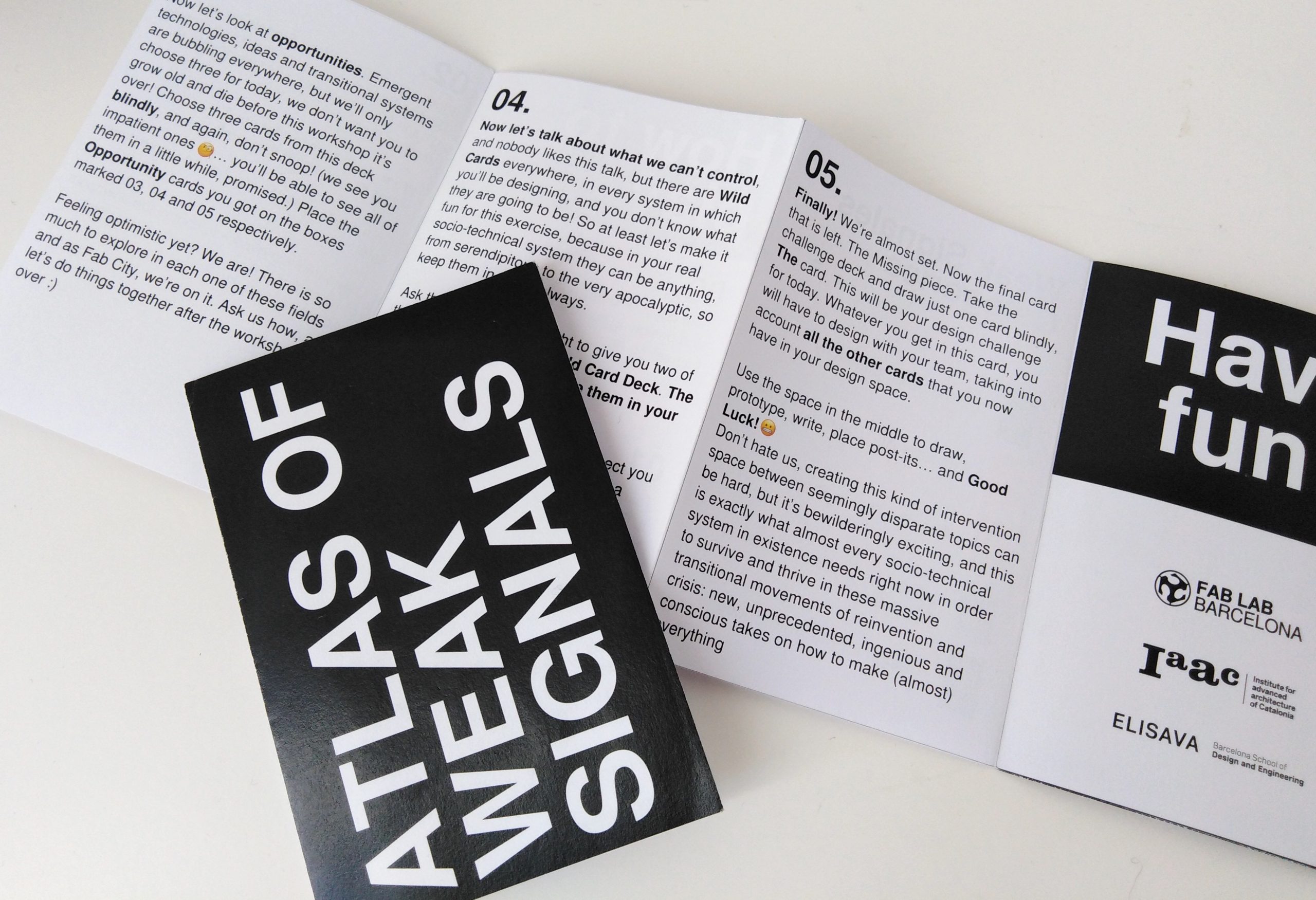
Finding Weak Signals to Design Emergent Futures. Workshop at Space10, Copenhagen, 26.02.2020.
Fab Lab Barcelona visited SPACE10 in Copenhagen to present the Atlas of the Weak Signals practice, hosting a series of inspiring talks on emergent futures and a workshop on the Weak Signals card game which was developed by the team at Fab Lab Barcelona. This was a half-day program in which 60 participants – employees from SPACE10 amongst other attendees -were introduced to the Atlas of Weak Signals. This alternative educational experience provided an opportunity to question, disrupt and challenge methods of practice, offering a chance to learn alternative perspectives on contemporary issues.
